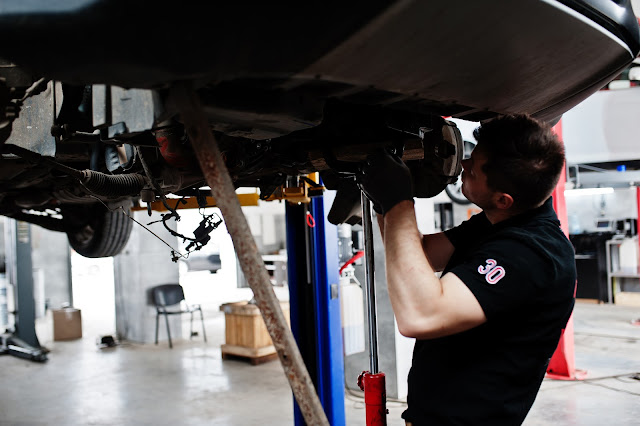Exploring Salvage Car Dealers: What You Need to Know Before Buying
Salvage car dealers play a unique role in the automotive market, offering a wide range of vehicles that have been deemed total losses by insurance companies. These dealers cater to a diverse clientele, from bargain hunters seeking affordable transportation to enthusiasts looking for project cars to restore and customize. In this blog post, we'll delve into the world of salvage car dealers, exploring the pros and cons of buying from them and providing valuable tips for prospective buyers.
Understanding Salvage Car Dealers
Salvage car dealers specialize in buying and selling vehicles with salvage titles, which are cars that have been damaged and declared total losses by insurance companies. These dealers acquire salvage cars through auctions, insurance companies, and private sellers, then refurbish, repair, and resell them to consumers. While salvage car dealers operate similarly to traditional used car dealerships, there are some key differences to be aware of when considering purchasing a salvage vehicle.
The Pros of Buying from Salvage Car Dealers
Wide Selection
Salvage car dealers typically offer a wide selection of vehicles, ranging from economy cars and family sedans to luxury vehicles and specialty models. Whether you're looking for a reliable daily driver or a project car for restoration, salvage car dealers often have something to suit every taste and budget. With new inventory arriving regularly, there's always something new to discover at a salvage car dealership.
Potential for Cost Savings
One of the primary attractions of buying from salvage car dealers is the potential for significant cost savings. Salvage vehicles are typically priced well below market value, reflecting their damaged condition and salvage title status. For budget-conscious consumers or DIY enthusiasts looking for a project, buying a salvage car can be an affordable way to get behind the wheel of a quality vehicle without breaking the bank.
Transparency and Disclosure
Reputable salvage car dealers prioritize transparency and disclosure when selling vehicles to customers. They provide detailed information about each vehicle's history, including the nature and extent of the damage, as well as any repairs or refurbishments that have been performed. By providing this information upfront, salvage car dealers empower buyers to make informed decisions and mitigate the risks associated with purchasing salvage vehicles.
Expertise and Support
Salvage car dealers often have a team of experienced mechanics and technicians who specialize in refurbishing and repairing damaged vehicles. They have the knowledge, skills, and resources to assess the condition of salvage cars accurately and perform necessary repairs and inspections to ensure they meet safety and quality standards. Additionally, salvage car dealers may offer warranties or guarantees on their vehicles, providing added peace of mind for buyers.
The Cons of Buying from Salvage Car Dealers
Limited Financing Options
Financing a salvage car purchase can be more challenging than financing a traditional used vehicle. Many lenders are hesitant to provide loans for salvage cars due to their perceived higher risk and uncertain resale value. As a result, buyers may need to explore alternative financing options or be prepared to pay cash upfront for their purchase. Additionally, insurance coverage for salvage cars may be more limited and expensive compared to standard policies.
Legal and Regulatory Considerations
Salvage car dealers must comply with various legal and regulatory requirements governing the sale of salvage vehicles. Depending on the jurisdiction, there may be specific licensing, registration, and disclosure requirements that dealers must adhere to when selling salvage cars. Buyers should familiarize themselves with these regulations to ensure they are protected and informed throughout the purchasing process.
Potential for Hidden Damage
While reputable salvage car dealers strive to provide accurate and transparent information about their vehicles, there is always a risk of hidden damage or undisclosed issues. Salvage cars may have underlying mechanical or structural problems that are not immediately apparent, posing safety risks and potential headaches for buyers. It's essential for buyers to conduct thorough inspections and assessments before finalizing a purchase to avoid unpleasant surprises down the road.
Time and Effort Investment
Restoring a salvage car to roadworthy condition requires time, patience, and dedication. While salvage car dealers may perform necessary repairs and refurbishments before selling vehicles to customers, buyers should be prepared to invest additional time and effort into their salvage car project, particularly if they plan to undertake further customization or restoration work. This includes sourcing replacement parts, coordinating repairs, and ensuring the vehicle meets safety and regulatory standards.
Conclusion
Salvage cars dealers play a vital role in the automotive market, offering a diverse selection of vehicles at competitive prices. While buying from salvage car dealers presents opportunities for cost savings and customization, it's essential for buyers to approach the process with caution and diligence. By understanding the pros and cons of buying from salvage car dealers and taking appropriate precautions, buyers can make informed decisions and enjoy a rewarding experience purchasing and owning a salvage vehicle.

.jpg)


Comments
Post a Comment